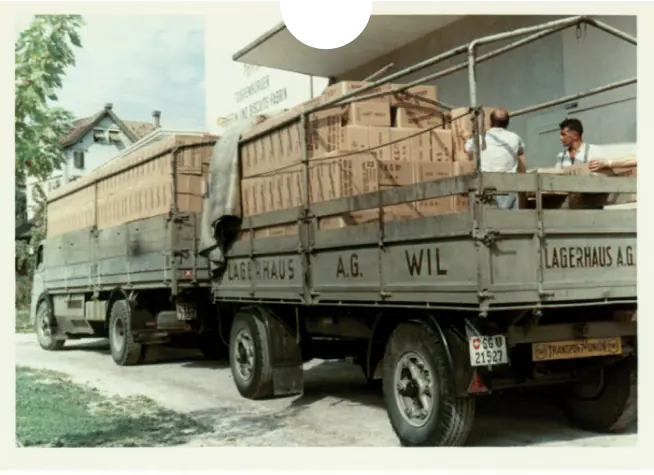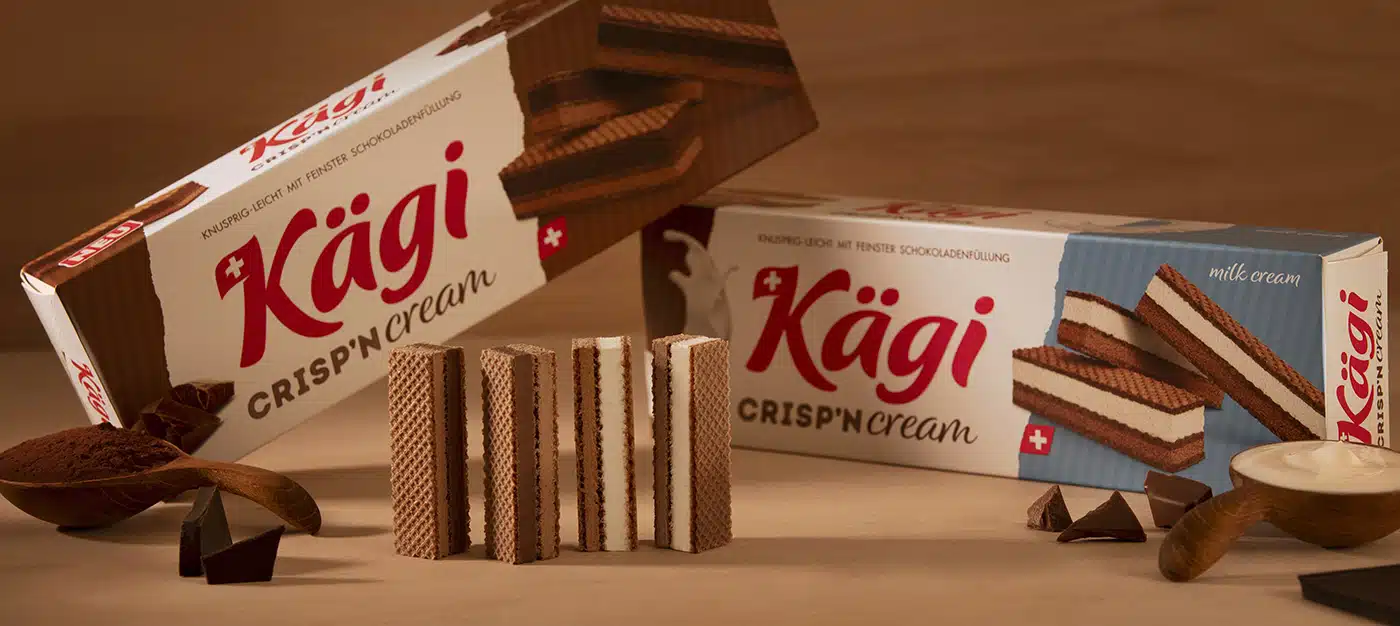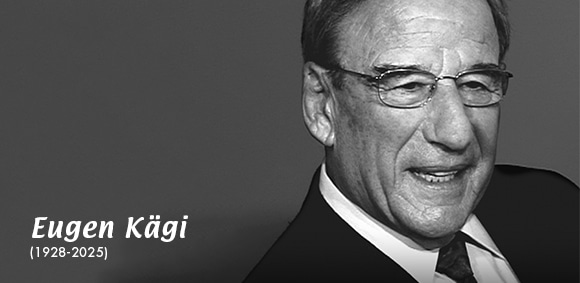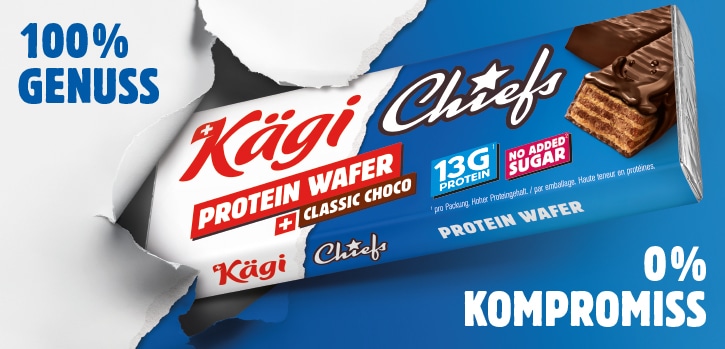With prudence and foresight, Otto Kägi senior purchased the Hecht property in Lichtensteig. It contained a bakery-patisserie and a restaurant. He lived in this large house together with six children. The Kägi success story was able to begin.
Otto Kägi was unique – a pioneer who saw that the key to success lays in quality: the quality of his products, but also of the services that he offered his customers. His approach was not simply to wait behind the counter for customers to arrive, but instead to take his products to them. In the beginning, Otto Kägi pedalled countless kilometres on his bicycle to deliver the delicious biscuits that he had made himself with great passion. His three sons, Otto, Eugen and Alfred, who later took over the Kägi company, also inherited his entrepreneurial, inquisitive and avant-garde spirit.
































